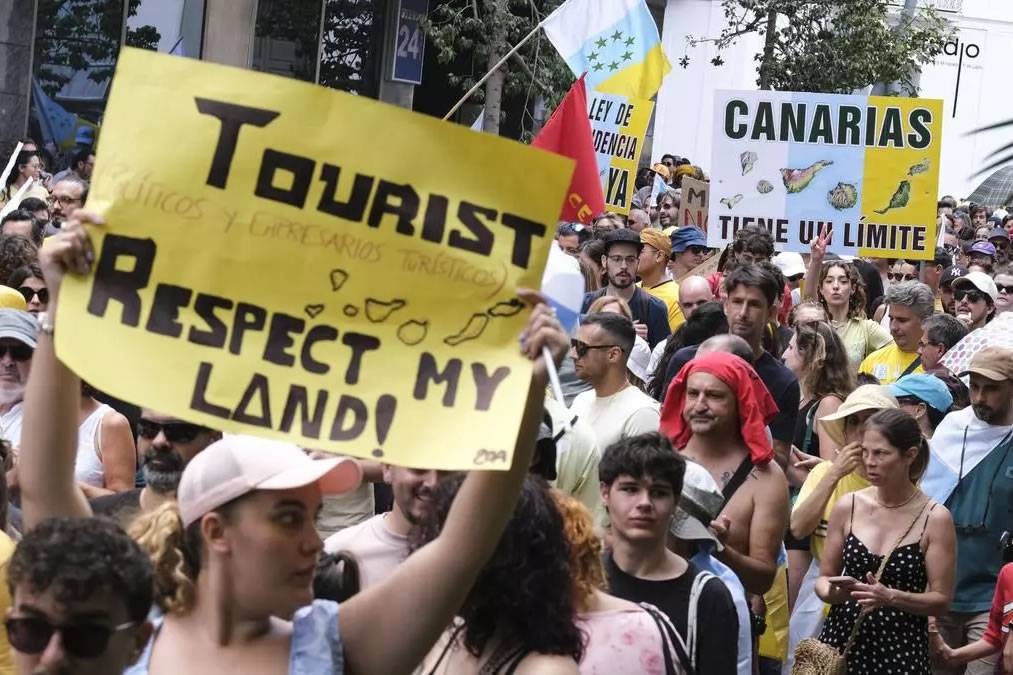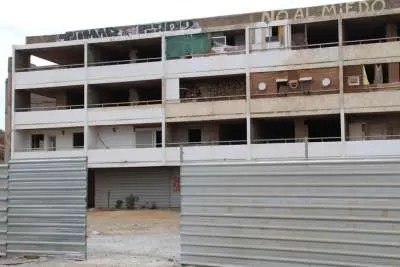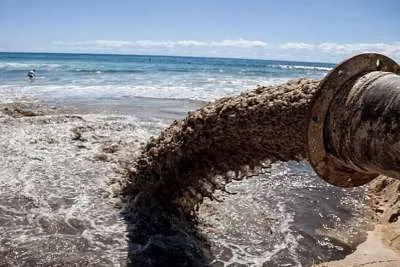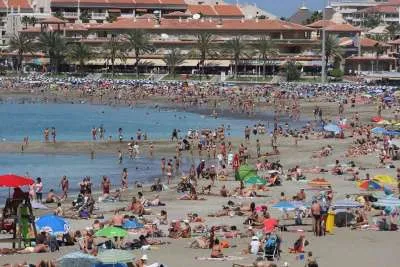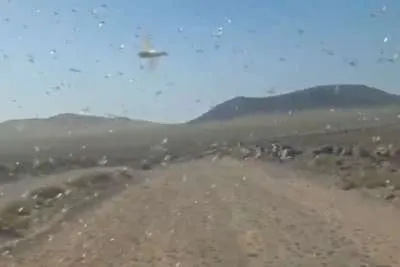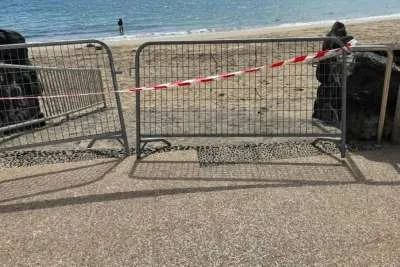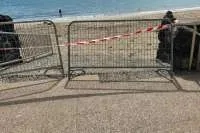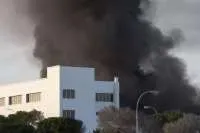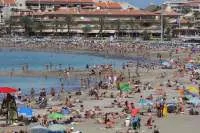More mass-tourism protests this weekend across the Canary Islands
- 18-10-2024
- National
- Canarian Weekly
- Photo Credit: Efe
New protests are set to take place across several of the Canary Islands on Sunday (October 20th) in key tourist hotspots including Playa Las Americas, Corralejo, Puerto del Carmen and Maspalomas. These demonstrations, part of the "20-O" movement, are fuelled by growing frustration over the growth of mass tourism, the lack of action by the government after the 20A protests, and the lack of benefits for local residents from this tourism model.
The protests follow the major "20A" demonstrations on April 20th, 2024, when more than 200,000 people took to the streets across the Canary Islands and other cities in Spain.
Protesters demanded a shift away from the island’s decades-long reliance on mass tourism, which has resulted in record numbers of visitors, flights, and hotel revenues, but little improvement in the quality of life for locals.
Despite the massive turnout in April, no significant action has been taken by the tourism industry or local governments to address the concerns raised by the movement, which is why they will be taking place on the streets of tourist areas this time.
Protest organisers argue that the situation has worsened since April, as more hotels have been authorised, VV licenses have surged, and there has been no meaningful protection of the islands' environment or efforts to improve working conditions for hotel staff, particularly "kellys" (cleaning staff).
Meanwhile, the regional government, led by Coalición Canaria and the Partido Popular (PP), has continued to reject measures such as an eco-tax or a moratorium on tourism growth, commonly implemented in other tourist destinations.
The Canary Islands are expected to welcome a record 18 million tourists by the end of 2024, a significant portion of the region’s economy, representing 25% of business activity and 40% of direct employment. However, this economic success contrasts sharply with the islands' social realities, where wages remain among the lowest in Spain, and poverty rates are alarmingly high.
According to protest leaders, the tourism boom is overwhelming the islands' fragile ecosystems and pushing residents to the margins. Natural sites such as Teide National Park and Timanfaya are at risk from over-crowding, and local communities, like those in La Graciosa and Masca, have staged protests against the overwhelming influx of visitors.
The organisers of both the 20A and 20-O protests stress that they are not anti-tourism or anti-tourists but are advocating for a sustainable model that prioritises the wellbeing of residents and the protection of the environment.
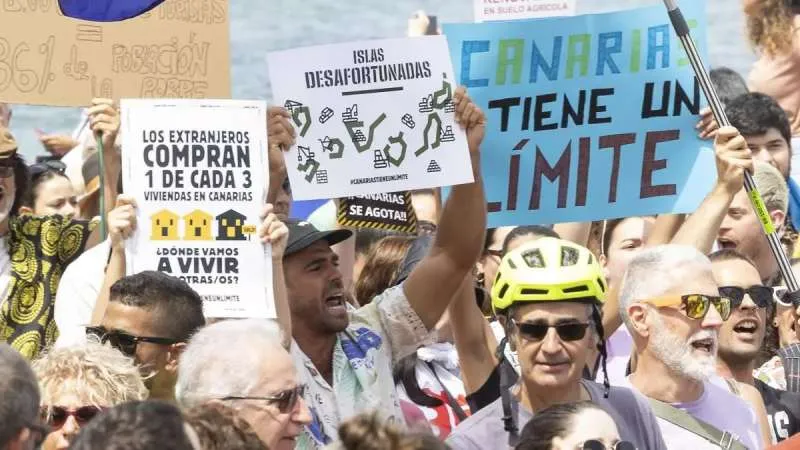
They are calling for strict limits on the number of tourists, new hotels, cruise ships, foreign homebuyers, and other developments that strain local resources, such as water and waste management. Despite these calls for action, the Canary Islands government has continued to expand tourism infrastructure, including the controversial approval of a new theme park in a protected marine area.
Efforts to address the impact of mass tourism on natural resources have been minimal. Despite water shortages affecting municipalities across the islands, there has been no significant reduction in water usage by the tourism sector. In fact, a new golf course in Adeje, Tenerife, has been given the green light, even though it will consume water equivalent to that used by 16,400 people.
Furthermore, the demands of hotel cleaning staff for improved working conditions, such as the introduction of elevating beds, a measure adopted in the Balearic Islands, have been ignored. The Canary Islands government voted against implementing this change, citing cost concerns, even though it has provided substantial subsidies to the tourism industry.
Although the government claimed to have listened to the public after the April protests, organisers argue that nothing has changed. They describe the government’s response as opaque and accuse officials of ignoring the will of the people. The result, they say, is a worsening "social and environmental collapse," with no solutions in sight.
As the number of tourists continues to grow, so too does local frustration. The upcoming protests aim to send a clear message: the current model is unsustainable, and limits must be imposed to protect the islands and their residents from further harm.
Other articles that may interest you...
Trending
Most Read Articles
Featured Videos
TributoFest: Michael Buble promo 14.02.2026
- 30-01-2026
TEAs 2025 Highlights
- 17-11-2025


